You may drink energy drinks while breastfeeding in moderation and as much as possible with the supervision of a professional doctor.
Caffeine is the most generally devoured energizer in the world. As such, consuming caffeine-containing drinks during lactation can bring up a ton of issues for new moms.
Post-pregnancy, moms tend to look for caffeinated drinks and other juiced refreshments to keep them energized for the day.
This can prompt an endless loop of taking caffeine to stay conscious, which will eventually disrupt quality rest for the mother.
There are a few factors that lactating moms should be mindful of when choosing whether caffeine is appropriate for them.
Contents
Basic Energy Drink composition
Caffeine
Caffeine is the major ingredient in all energy drinks. The caffeine content varies in different energy drinks. Some contain 300mg of caffeine per can and some even contain 50mg to 100 mg of caffeine.
The maximum daily intake limit for a healthy adult is 400mg. I would still recommend you to have energy drinks in moderation because taking too much caffeine can lead to a lot of problems such as:
- Insomnia
- Trouble breathing
- Vomiting
- Hallucinations
- Confusion
- Chest pain
- Irregular or fast heartbeat
- Uncontrollable muscle movements
- Convulsions
Taking energy drinks in moderation can be helpful given it will boost your energy and give you stamina.
Sugar
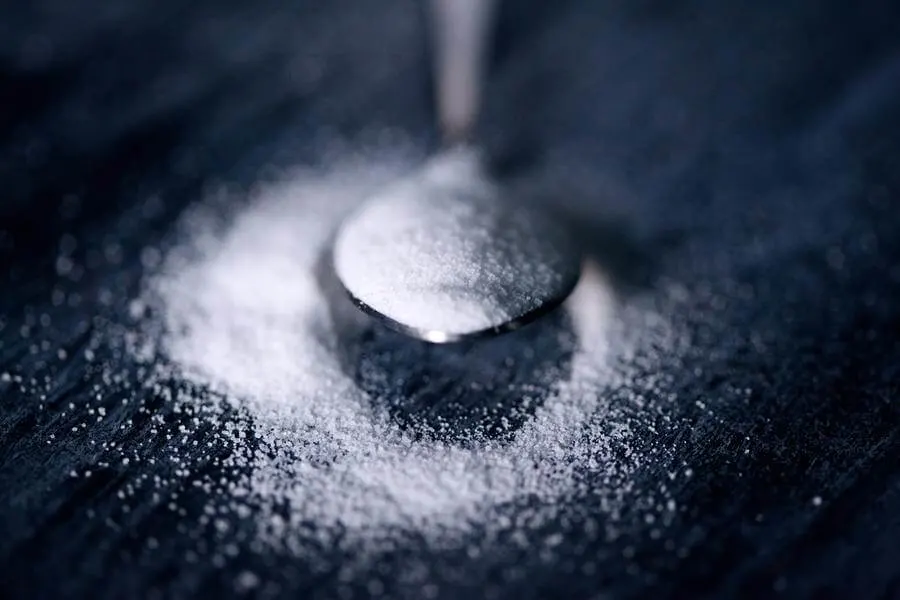
The second most common ingredient in energy drinks is sugar, because of the energy that it provides and the taste. But sugar is not good for health, therefore a lot of energy drinks are cutting off sugar from their drinks.
Most energy drinks contain artificial sweeteners like sucrose. Artificial sweeteners don’t usually carry extra calories which is why it is a better option than sugar.
On the other hand, it is still recommended to have artificial sweeteners in moderation. Too much of it can cause side effects.
Taurine
Taurine is an amino acid that is found in a lot of energy drinks. It is considered one of the most essential amino acids.
Energy drinks contain around 600-1000 mg of taurine per 8 ounces serving. The benefits of taurine are:
- Improve heart function
- Improve liver function
- Improve brain function
- Antioxidant
Breast milk contains a lot of taurines which is sufficient for infants therefore taking drinks with a significant amount of taurine is not wise.
It is better to take a drink that has no or very little taurine.
Guarana
Guarana is a natural source of caffeine that is used in a lot of energy drinks.
It has a number of health benefits like :
- Treatment for anxiety
- Helps weight loss
- Improves mental health performance
- Helps with fever
- Helps with headache
- Enhancement of athletic performance
Overdose of guarana would result in negative side effects. Therefore, it should be taken in limitation, especially for breastfeeding mothers since the caffeine is passed on to the milk.
B-Vitamins
Vitamin B2 (Riboflavin)
It is responsible for breaking down the fats, proteins, carbohydrates that we intake into energy and it helps to take care of the energy storage in our body.
Vitamin B3 (Niacin or Niacinamide)
It is an antioxidant that helps to keep the cells in our body healthy and also protects them from harmful substances. It also plays a vital role in creating DNA cells in our body.
Vitamin B12
It helps to keep our blood and nerve cells healthy. It is also a vitamin that helps in DNA cell production.
Keep in mind that Energy Drinks should not be a source of gaining B-vitamins because they contain small quantities of these vitamins.
Ginseng
Ginseng has been utilized for quite a long time as a restorative spice and is accepted to expand energy, have some enemy of anti-fatigue properties, alleviate pressure, relieve stress, and advance memory.
Energy drinks usually have 8mg to 400mg ginseng content in ounces.
Since the measure of ginseng in a caffeinated drink is insignificant, hurtful impacts are far-fetched.
Is it safe to have caffeine while breastfeeding?
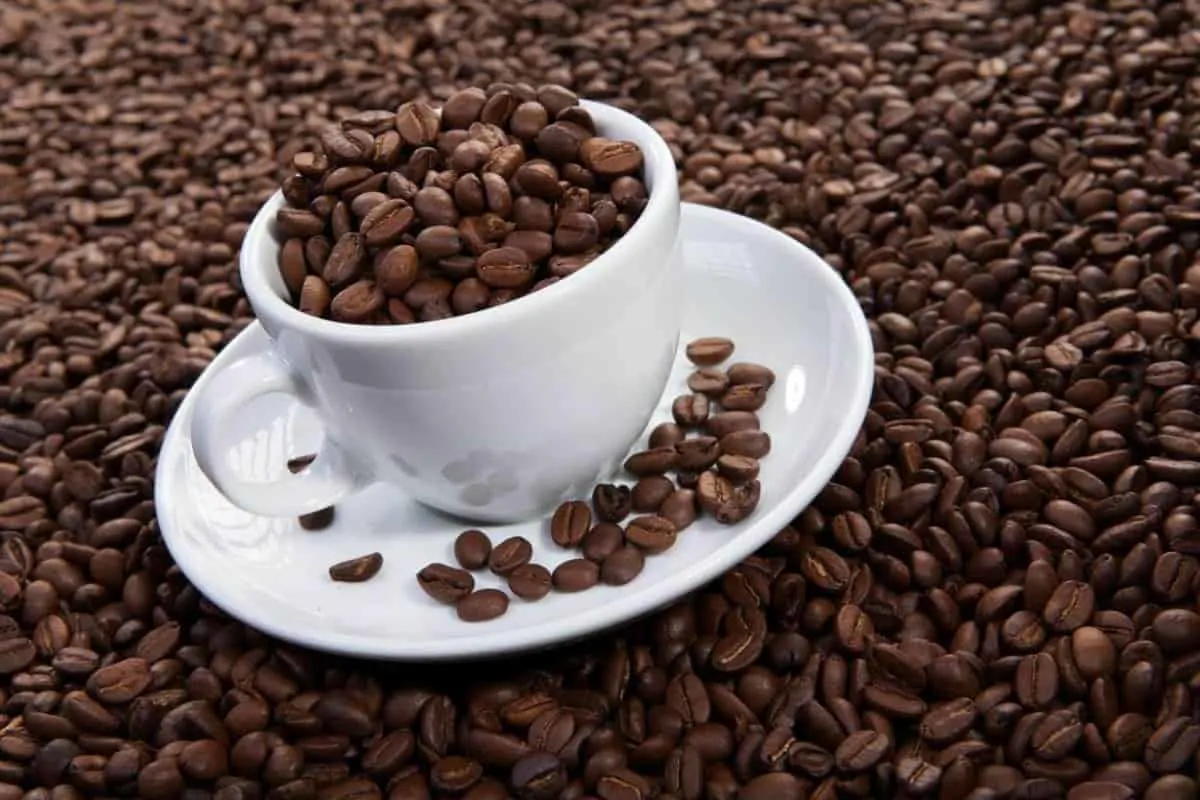
It is generally safe to have caffeine while breastfeeding.
But having said so, caffeine can still affect some babies. Bosom milk can contain little hints of the substance and infants are likewise more sensitive to it.
Signs that your caffeine intake is influencing your child include:
- Increased fussiness and irritability
- More trouble going to sleep or staying asleep
- Hyperactivity
- Restlessness
It takes a few days for the caffeine to be completely washed out in the system of a newborn, but it only takes a few hours compared to older babies.
Having caffeine in your diet can also affect the quality of your breast milk. Having about 12mg of caffeine every day can reduce the iron level to one-third compared to mothers who do not have any caffeine intake.
Eliminating caffeine from your diet can improve the iron level in your breast milk.
How much caffeine is okay to have while breastfeeding?
Although it takes longer for infants to break down caffeine, you can still have caffeine in moderation if you are breastfeeding.
A lactating mother can have up to 300mg of caffeine per day. Consuming caffeine to this limit does not cause any harm to infants according to recent research.
Taking caffeine in moderation for lactating moms is fine considering that most of the energy drinks have caffeine as the main ingredient for an energy booster.
Having said so, it is still not recommended to depend on these ingredients for energy as there as still natural ways to supply energy to the body.
How long does caffeine stay in breastmilk?
The amount of caffeine remaining in a woman’s breast milk differs from person to person. But usually, the caffeine is completely gone within the next 24 hours of having caffeine.
For an adult, within 60 – 120 minutes are the peak levels of caffeine in the body, while 4.9 hours is the half-life of the caffeine.
Taking a high amount of caffeine can be passed on to the baby and can cause the baby to be awake and irritable.
How long after drinking an Energy Drink can you breastfeed?
The caffeine level is at its peak after one to two hours of caffeine intake, therefore it is safe to breastfeed after a few hours of having caffeine. In that way, the minimum amount of caffeine will reach the baby.
About only one percent of the caffeine you intake goes to breast milk. The body usually tends to use up all the caffeine intake from the food and drinks which are devoured by the mothers before reaching breast milk.
It is safe to have 300mg of caffeine for a lactating mother, but I would still suggest having less caffeine just to be on the safe side so that breast milk does not lose any of its neutrons.
How does sugar affect breast milk?
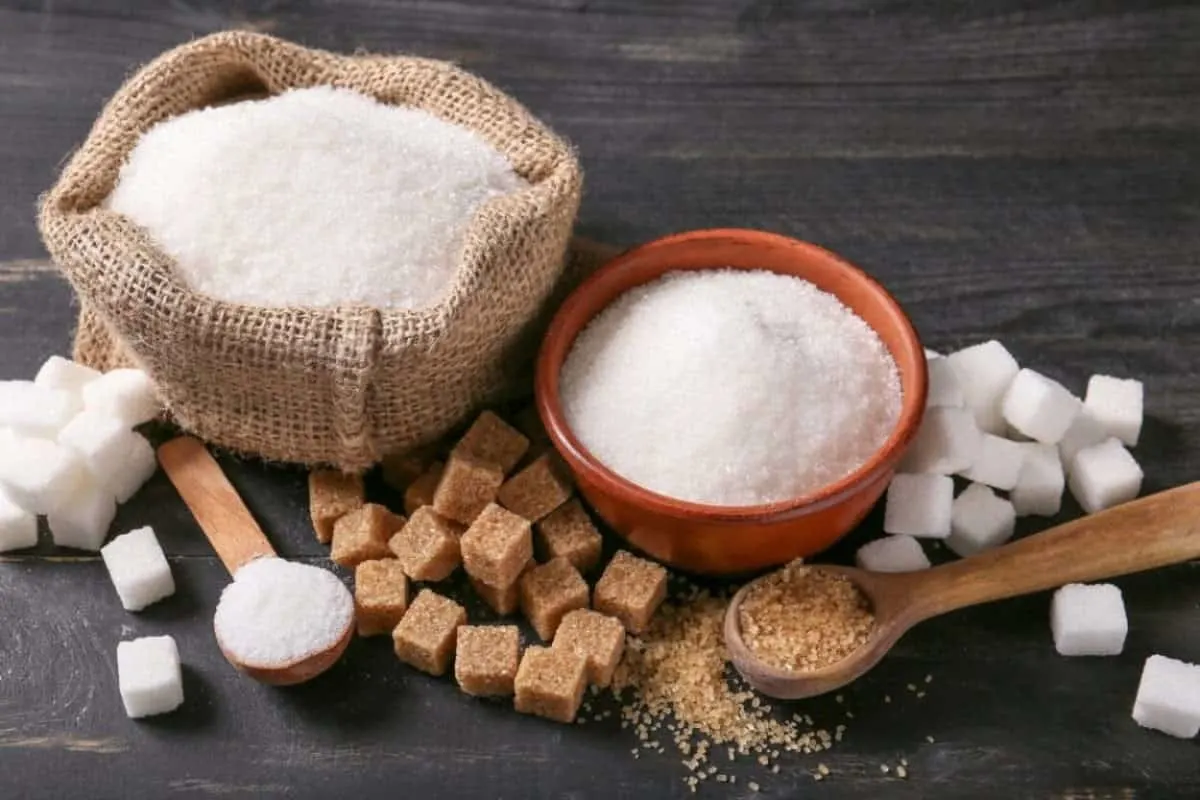
Studies have shown that sugar is passed on from mother to the baby while breastfeeding.
The high amount of sugar can create problems for infants and children, especially when they are exposed to it during their growth period.
Sugar and artificial sweeteners can be particularly damaging for growing kids. Any amount of sugar in breast milk is risky because it messes with the balance of nutrients in breast milk if taken beyond the recommended intake as it contains calories.
Why are energy drinks bad for nursing mothers?
There isn’t any particular study that shows nursing mothers cannot have energy drinks.
The maximum level of caffeine breastfeeding mothers can take is 300mg. But it is still recommended to keep the caffeine intake to a minimum especially when the source is an energy drink.
This is because energy drinks contain a lot of other ingredients like sugar or artificial sweeteners which are bad for breast milk.
Choosing an energy drink that contains less caffeine, no sugar or artificial sweeteners would be a better choice.
Does caffeine decrease breast milk?
There is no proof that caffeine diminishes milk supply.
No such impact has been noticed, in any case, notwithstanding various investigations of caffeine consumption in breastfeeding moms and long periods of clinical perceptions.
A child who is fastidious and anxious from caffeine incitement may not nurture well. In any case, which could prompt a decreased milk supply in the long run (because of decreased nursing, as opposed to the mother’s caffeine admission).
How long after drinking Red Bull can I breastfeed?
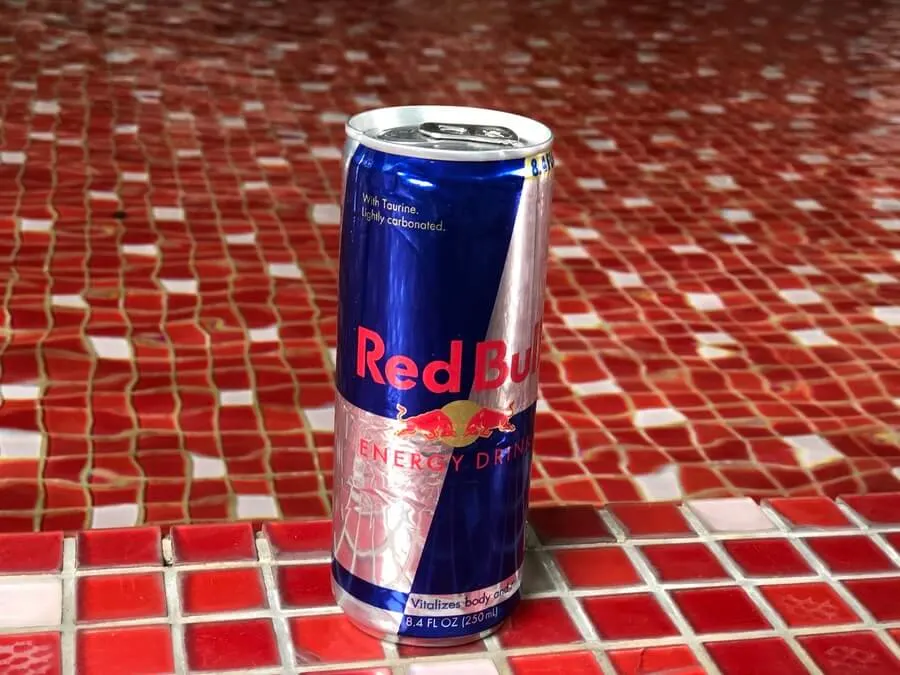
Red Bull contains 80mg of caffeine per 8.4 fl. oz serving. It contains 110 calories and 27g of sugar.
Given that the caffeine effect is at its peak during the two hours of having the drink, it can be said that it is safe to have Red Bull 4 to 5 hours prior to breastfeeding.
Red Bull is a few grams over the maximum sugar intake limit per day for a woman (24g)which is not good for breast milk. Therefore I would suggest going for energy drinks which have little to no sugar in them.
Can you drink Monster energy drinks while breastfeeding?
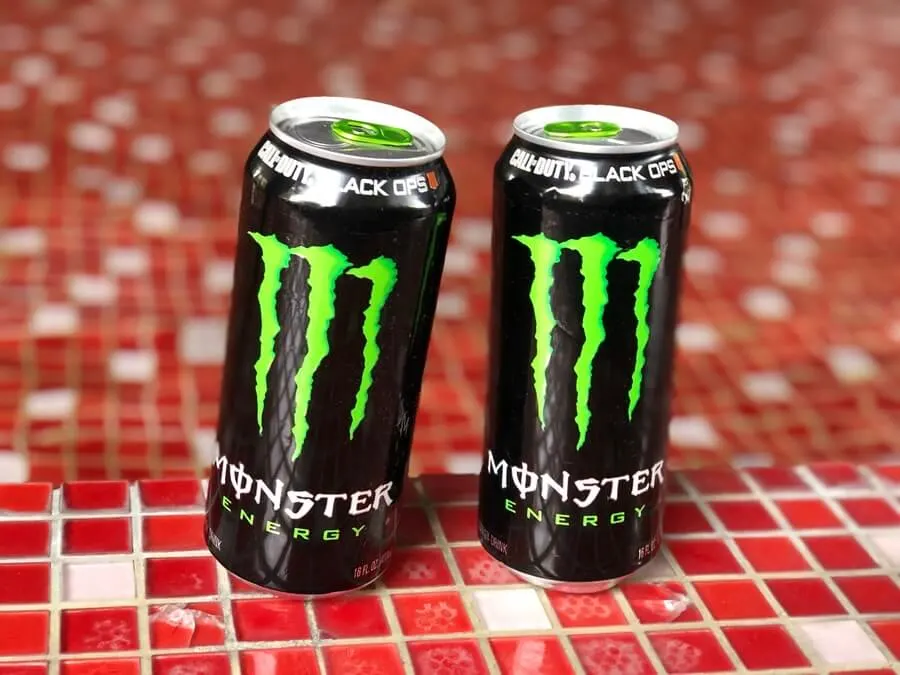
This drink is very high in sugar content, and since sugar hampers the quality of breast milk, I would personally not recommend this energy drink.
Monster Energy drink has 160mg of caffeine and 54g of sugar.
There are a lot of other energy drinks which are more suitable for mothers who are breastfeeding.
Healthy Energy Drink Choices
Red Bull (sugar-free)
The sugar-free assortment of 8.4 fl. oz jar has 80mg caffeine and 0g sugar. It’s obviously superior to the customary Red Bull which contains a similar measure of caffeine, yet 27g of sugar.
In case you’re a Red Bull fan, I propose you go for the better, sugar-free form.
Matcha Bar Hustle Unsweetened
Matcha Bar Hustle is incredible when you need a fast shot in the arm jolt of energy. MatchaBar Hustle contains 120mg of caffeine and 0g of sugar per 12 fl. oz. The caffeine content is somewhat more than whatever I typically like, however it’s only by a small amount – not huge enough to really bring on any damage.
ZipFizz
ZipFizz is a powder form that you will dilute in water to make a caffeinated drink. It’s very advantageous. A single-serve contains 100mg of caffeine and 0g of sugar just as an assortment of different ingredients generally found in caffeinated beverages like B vitamins.
It contains a faltering 41,667% of every day an incentive for nutrient B12.
Final Thoughts
It is not recommended to take energy drinks while you are breastfeeding. While you can have good options for some drinks with low doses of caffeine, sugar, and other ingredients which can still negatively affect the quality of your breast milk for your child or children, it is still best to avoid these drinks.
Taking energy drinks even with minimal risk just to supply energy to your body is not worth it. Since aside from you, an infant can also be a recipient of the possible negative side effects.
On the other side, if you are really looking for an energy booster or are already dependent on energy drinks for your energy, it is important that you choose the right energy drinks for yourself.
I would recommend having an energy drink with low caffeine content and zero sugar.
Also, it is suggested to have any caffeinated food at least 3 to 4 hours before breastfeeding so that the caffeine does not pass on to the baby.
Below are other articles you might want to check:
